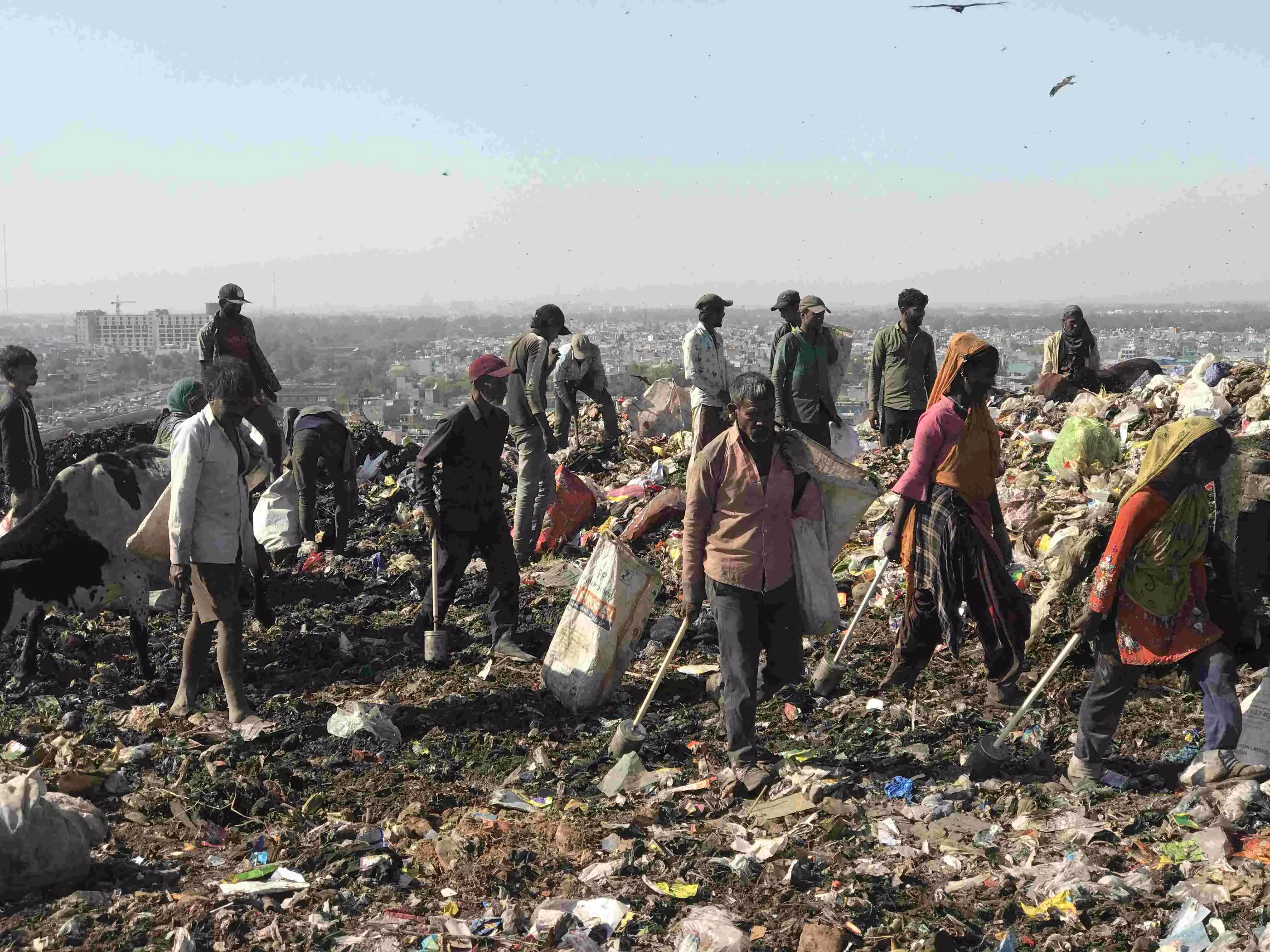A mounting menace

The recent censure by the Supreme Court on New Delhi's woeful solid waste management situation points towards the urgent need for comprehensive action. With over 3,800 tonnes of untreated solid waste accumulating daily, the national capital's environmental and public health face an imminent threat, affecting the quality of life of people residing in the national capital. In fact, the apex court mixed no word in saying that “the generation of untreated solid waste in such huge quantities directly affects the fundamental rights of the citizens under Article 21 of the Indian Constitution to live in a pollution-free environment.” Here, it may also be pertinent to note that a large chunk of underprivileged people, mostly migrants from other states, reside adjacent to the precarious landfills, and pick wastes from the dumpsites, illegally, to earn their living.
Delhi's solid waste management system appears to be faltering under the weight of increasing urbanisation and consumption patterns. As news reports suggest, with the city's population projected to soar to 2.32 crore by 2024 and 2.85 crore by 2031, waste generation is expected to skyrocket to 17,000 tonnes per day. Yet, the current infrastructure is ill-equipped to handle this surge. The existing waste-processing facilities, with a combined design capacity of 9,200 TPD, are overwhelmed by the sheer volume of waste. At the same time, approximately 3,800 TPD of unprocessed waste finds its way into landfills daily, exacerbating environmental degradation and health hazards. The legacy waste, amounting to a staggering 2.58 crore tonnes, stands at the heart of the issue. Legacy waste is basically the massive volume of waste accumulated in dumpsites.
The Municipal Corporation of Delhi (MCD) has been grappling with multifaceted challenges hindering effective waste management. The absence of waste segregation at source, inadequate processing infrastructure, and insufficient public awareness continue to perpetuate the cycle of waste mismanagement. Moreover, logistical hurdles, including land scarcity for establishing processing plants and lack of coordination among stakeholders, stand as structural roadblocks. There is, certainly, a need for a multifaceted approach encompassing short-term interventions and long-term strategies. Immediate measures must focus on waste segregation at source, facilitating public awareness campaigns, and fine tuning waste collection services to curb indiscriminate disposal. Simultaneously, efforts should be intensified to ramp up processing capacity and expedite biomining initiatives to mitigate the legacy waste burden.
To accommodate the projected increase in waste generation, Delhi must augment its processing capacity substantially. The MCD should prioritise the establishment of composting and biogas plants to manage biodegradable wet waste efficiently. Additionally, leveraging refuse-derived fuel (RDF) for energy generation through waste-to-energy projects can help alleviate the burden on landfills while promoting sustainable practices. Furthermore, given the constraints posed by land availability, exploring decentralised waste management solutions becomes very crucial. Delhi should emulate successful models implemented in other states. There are several states/cities in India that have shown that a positive overhaul of solid waste management is possible and feasible.
The Supreme Court's admonition highlights the gravity of Delhi's waste crisis and calls for swift and decisive action. All concerned authorities must collaborate synergistically to devise and implement sustainable waste management solutions. Delhi stands at a critical juncture in its quest for sustainable waste management. The need of the hour is concrete action backed by political will and public participation.



